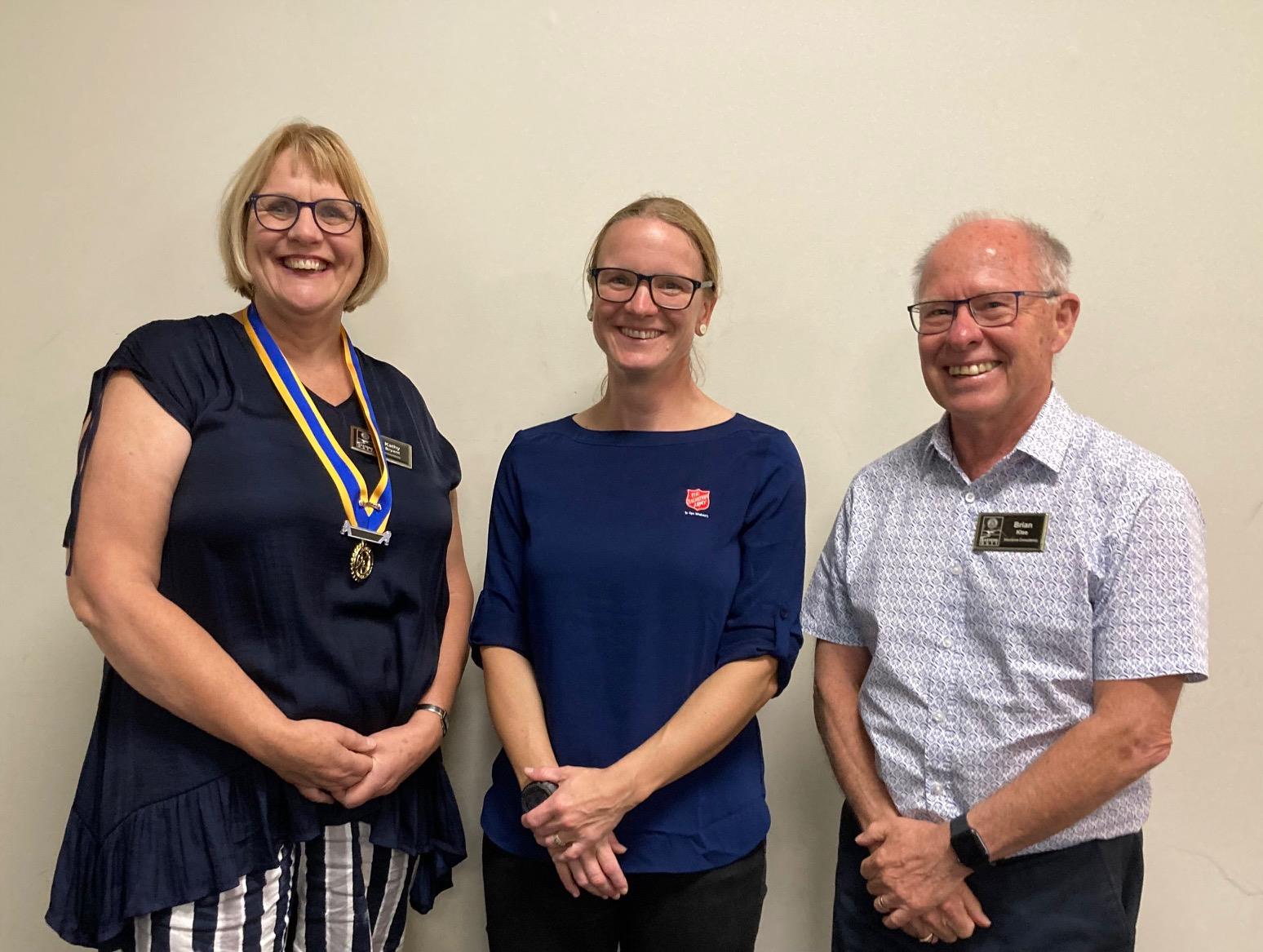
Judith O'Byrne, Community Ministries Manager, Salvation Army, Lower Hutt
Judith came to New Zealand four years ago from Germany, for a nine-week holiday and stayed here. Judith is married with two children and has studied theology. A member of the Salvation Army, she has a passion for helping people, a passion for helping to meet people's basic needs and a strong sense of social justice. She spoke about the work of the Army's Lower Hutt Food Bank.
She explained that there is a cost-of-living crisis for many people which manifests itself in the need for a food bank, but this is often the tip of the iceberg, a result of basic unmet needs for housing, for high rents and often poor health. The Army has Emergency Housing but also Transistional Housing, which is supposed to last for only twelve weeks. Compounding the health problem is the fact that healthier foods are often more expensive, especially important for children. It is because of this that foodbanks exist and are being increasingly called on.
Judith explained how the Lower Hutt Food Bank operates. "We do not just hand out food. We always interview people when they first come to us and find that hunger is only the immediate problem they face - many have more basic problems such as unemployment, bad health, sometimes mental illness and could be into a cycle of depression, violence, aimlessness, drugs and crime and alienation from society".
As well as providing food and clothing they provide ongoing case work to encourage a sense of participation in society, to enhance a person's mana, to develop the ability to choose and use healthy food, and ultimately to become more able to operate independently.
A case in point is the layout of the food bank itself. Previously they handed out ready-made parcels, but now the bank resembles a mini supermarket. Clients are given an appropriate number of points, for example depending on the size of their family. They then choose what items to purchase for their "parcel". They can be assisted in their choices by one of their volunteer helpers. It is therefore difficult to give the actual "average value" of the parcels. All our clients are asked to complete a survey to help them understand their needs and their satisfaction with the help they receive.
In May 2022 they gave out under a hundred parcels a month but by March 2023 they are giving out over one hundred and fifty. Even so this is not enough, and they are constantly having to refer people to other sources of help.
"Our dream is to expand our work to develop more co-operation, as in food co-ops, to encourage better use, as in cooking classes, and to encourage independence with gardening and vegetable growing. Our wish-list has three short term items: for more volunteers to assist with personal shopping; for everyone to spread the word that help is available for those that need it; and for regular donations of toiletries, deodorants, shampoos, shaving kits and such which help a person feel more self-confident".
Answers to questions included that the food bank was open on three mornings every week, based in the Family Store in Cornwall Street, that much of their food comes from Countdown, some from donation bins in other supermarkets, some from other donations, and some they have to buy in.
While we are grateful to the Army for what they do, and it is admirable that such help is available in New Zealand it is a national shame that such help is too often dependent on non-government charities. But so long as there is this need, the Salvation Army is here and in 131 other countries.